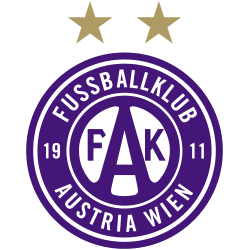 Home
Home
One sports / physiotherapist is assigned to each small group of six players. There is no mixing. The treatment of players is limited to the essentials for the time being. ‘We have reduced hands-on therapy to a minimum. We also see that the players leave the training area as quickly as possible after the end of the training,’ explains physiotherapist Christoph Lichtenecker.
If the players have to be treated, then with mouth and nose protection, gloves and in a separate room for each physiotherapist.
Before the first small group training, all Austria Wien players and coaches were tested negative for the Corona virus. The probability of a new infection is being minimized with several steps. Early in the morning, the players receive seven health questions on their smartphone via SAP, which the physiotherapists created together with their team of doctors. Before Alex Grünwald & Co. make their way to the Generali-Arena, they have to check their temperature at home.
‘The seven questions best cover the symptoms of the virus. We would immediately notice if someone had symptoms - in which case we would take the next steps in consultation with our doctors,’ explains Lichtenecker.
Before entering the dressing rooms and training areas, there is also a checkpoint where the medical team once again asks questions about everyone's condition. It is also being checked whether everyone is properly equipped with a mask, their own water bottle and disinfectant.
Sports therapist Christian Hold has been taking care of the Austria Wien players for 19 years and feels that the “Violets” are currently enjoying football a lot. ‘At the same time, everyone is very disciplined and focused on the rules. I see that the players appreciate their job, their privilege to play for Austria Wien, because of the exceptional situation,’ says Holdi.
His small group with the defensive players Florian Klein, Michael Madl, Erik Palmer-Brown, Andreas Poulsen & Jimmy Jeggo enjoys another icing on the cake: ‘How cool is it to train in the stadium? Each of us thinks that this is a very special feeling. It reminds me of the big international games where the final training always takes place in the stadium,’ says Christian Hold.
As a former professional, physiotherapist Florian Metz can put himself in the position of the players. ‘As a former football player, you know how much the ball means - the boys are having a lot of fun on the court right now.’ His role at the moment is that of the companion and primary care giver. ‘Playing football after the break is a great muscular strain for the boys, but the training is well controlled.’ This means that the need for treatments remains minimal.
During isolation, the short-time work of the physiotherapists was limited to phone calls with players and the creation of additional units for injured people. At the end it was necessary to make extensive preparations for the small group training in order to follow the requirements of the government & Bundesliga and create a concrete process on site that meets all medical requirements.
‘We are something of a test project - which is why we are definitely in focus. But it is better than not training at all,’ emphasizes Lichtenecker, who also wants his team to check whether the rules are being followed. Sports therapist Josef Haslinger is enthusiastic about working with Austria Wien:
‘Everyone thinks about what is important now, such as keeping your distance, disinfecting and having your own water bottle. I think it's a change for everyone, but we made the most of it.’
During their time in the home office, the physiotherapists had more free time, which Josef Haslinger used, to educate himself with literature from the areas of sympathetic and parasympathetic. ‘Simply put, these are nerve strands that are responsible for tension and relaxation. The literature dealt with the question: How can you support the relaxation of professional athletes quickly and easily?’